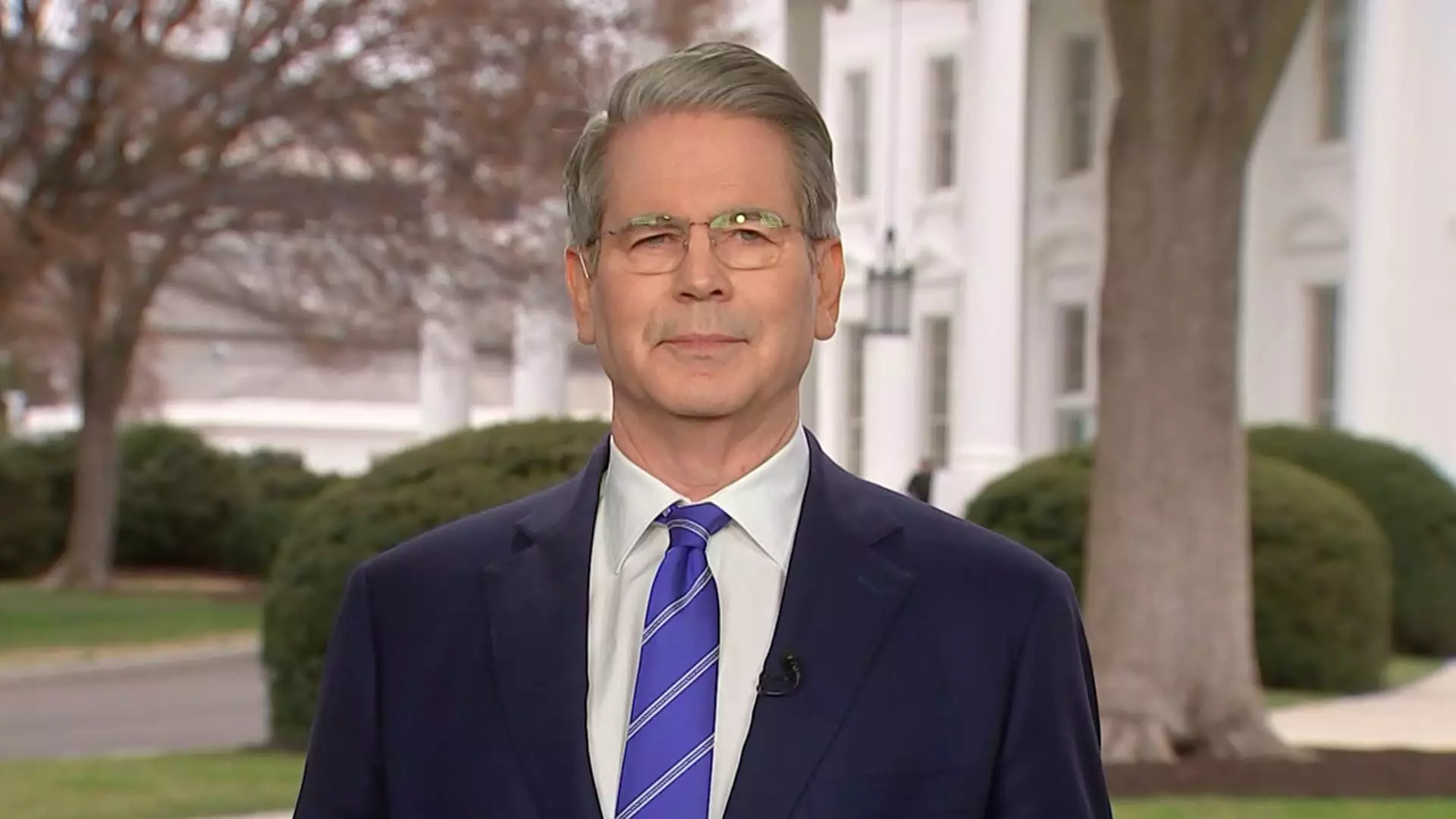In a rapidly changing economic landscape, the dichotomy between government stimulus and responsible fiscal policy has never been more pronounced. Treasury Secretary Scott Bessent echoed these concerns recently, suggesting that the Trump administration’s earlier spending patterns were pushing the U.S. towards an inevitable financial crisis. To downplay his warnings would be naïve; it’s a clear message that we are dancing on a tightrope, with the financial abyss beneath us growing deeper and more inviting with each dollar spent.
Bessent’s claim that continued government spending at unsustainable levels would trigger a financial meltdown is not merely hyperbolic. The past few years have shown us that unchecked expenditures can lead to crippling debt and an ever- expanding deficit. With February’s budget deficit alone surpassing the $1 trillion mark, the urgency for fiscal reform is unmistakable. Our economy cannot remain robust if fattened by a financial bubble inflating from government overspending.
Reformer or Risk-Taker? The Dilemma of Trump’s Policies
President Trump has positioned himself as the harbinger of fiscal austerity. Still, his establishment of the “Department of Government Efficiency,” spearheaded by none other than Elon Musk, raises several eyebrows about the administration’s commitment to genuine economic reform. While job cuts and early retirement incentives might appeal to the cost-cutting mantra, they also present a dangerous gamble on the employment of thousands of federal workers—many of whom live paycheck to paycheck. Are we sacrificing the economic stability of American workers for the lure of a leaner government?
Moreover, Bessent’s perspective on market corrections could be misconstrued. He maintains that such pullbacks are normal and healthy; however, they often disproportionately affect the average employee or consumer while allowing speculators to play the market. The market’s tumult as a result of Trump’s tariffs indeed raises legitimate concerns about inflation and economic slowdown, yet they seem to be off the administration’s radar. A reactionary policy, rather than proactive reforms, skirts the issue of structural problems within our economy.
The Party of Solutions or Chaos? Insights on Future Policies
The trajectory appears bleak if we view Trump’s pro-business initiatives through a liberal lens that values collective welfare over pure market forces. While Bessent hopes for an outcome driven by good tax policy and deregulation, we must ask ourselves: Who benefits? If history is any teacher, the rewards of such policies may only flow to the already affluent, leaving middle-class Americans gripping tighter onto the remnants of their financial security.
The notion that these policies will lead to market prosperity plays into the age-old narrative that the rich will take care of the rest. However, the social fabric of this nation isn’t merely a canvas for economic growth; it’s made of individuals and families who need assurance, not just market booms as indicators of success. As we push towards a brighter economic future, the question remains: will we choose full-throttle spending paired with pro-business deregulation or meaningful policies that ensure stability for all? The choice we make will determine if we’re on the path to prosperity or teetering dangerously close to economic chaos.

